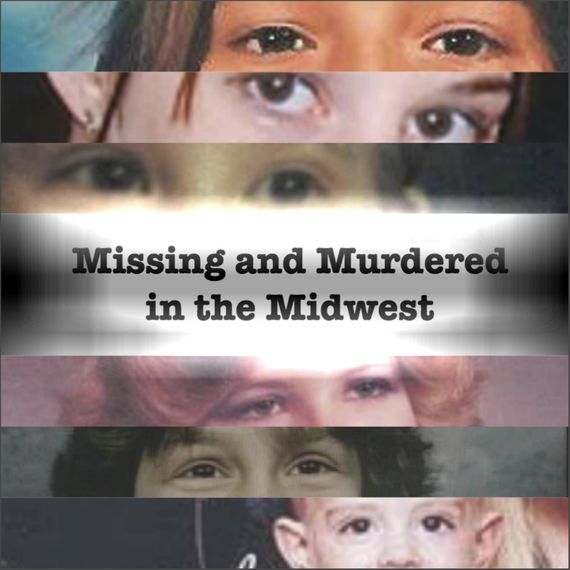
The true-crime-podcast universe is ever-expanding. We’re here to make it a bit smaller and a bit more manageable. There are a lot of great shows, and each has a lot of great episodes, so we want to highlight the noteworthy and the exceptional. Each week, our crack team of podcast enthusiasts and specialists will pick their favorites.
Loose Units: “The Real Underbelly”
A spinoff of Paul Verhoeven’s 2018 book of the same name, Loose Units features the Australian author and his ex-cop dad, John, who regales his son (and listeners) each week with a story from his time on the Sydney police force in the 1980s. This installment is — as we’re told in the intro — one of the lighter ones, which really says something about the podcast, given that the tale centers on the exhumation of a headless body. But the father-son duo have a genuinely fun, lively rapport, and this easy-to-swallow episode makes me eager to go binge the rest of the purportedly heavy queue. —Amy Wilkinson
Room 20: “The Name”
Room 20 is framed as a mystery: An unidentified man lies in a California care facility in a vegetative state. He’s been given a confounding name — not John Doe, but “Sixty-Six Garage.” There are some lingering questions about the accident that landed him there. And the podcast’s host, a reporter named Joanne Faryon, has quit her day job and dedicated herself to learning more about his story. Room 20 isn’t an easy listen, especially in the opening chapter, which includes difficult audio from inside the patient’s room. But as the story develops, it becomes clear the podcast isn’t simply aiming to solve a mystery, but to open a window into a story that’s dominating today’s political conversation: undocumented immigrants and the risks they face after crossing the border. Faryon’s reporting touches on our reliance on immigrants to work on the farms that feed us. It also points out the cost (and the value) of public funding for care of people living on the margins. But at its heart, where episode five, “The Name,” takes us, is a story about the inherent value of identity, of familial connections, and of belonging. Room 20 is far from a perfect podcast, but its intentions, and some of its revelations, make it worth a listen. —Rebecca Lavoie
Shreds: Murder on the Dock
Here’s a podcast from this year that’s recently entered our radar, courtesy of the BBC. Lynette White’s brutalized body was found in a vacant apartment above a gambling shop on Valentine’s Day of 1988. The murder of the 20-year-old in Cardiff, Wales, would become one of the U.K.’s most notorious cases — but not for the reason you’d expect. Ceri Dawn Jackson, who reports Shreds: Murder in the Dock, says if you saw a film about the case, you wouldn’t believe the story was true. The podcast takes listeners inside Tiger Bay, a diverse area that had a busy red-light district. At the center of the district was the Casablanca Nightclub, known for live music, marijuana, and sex. Lynette was a well-known sex worker in the area who went missing five days before her murder. Inside a dark, unfurnished flat, police found Lynette’s bloodied body and an open but unused condom on the sole piece of furniture, a mattress. She’d been stabbed 50 times and had her throat slit. Detectives got an early lead: a white man was seen crying and covered in blood near the apartment. But ten months later, police charged five black men with the stabbing. Shreds has released 13 episodes, which promise a deep dive into what is considered both the U.K.’s most well-known case of wrongful conviction and its largest police corruption trial. —Lara Bricker
88 Days: The Jayme Closs Story: “Keeping Hope Alive”
You’ve probably heard of Jayme Closs. She’s the 13-year-old who disappeared on October 15, 2018, after her parents, Denise and James Closs, were murdered in their Wisconsin home. The search for Jayme continued for 88 days, until she escaped her kidnapper, Jake Patterson, who was holding Closs in a cabin 70 miles away. This podcast is a creation of Minneapolis’ KARE 11 News, and hosted by KARE 11 reporter Lou Raguse, who covered Closs’s story from the very beginning, and co-produced by KARE 11’s Ellie Coatar. In this episode, Raguse examines what was happening a month after Jayme disappeared — including a lot of false leads (a guy who broke into the empty Closs house and stole Jayme’s underwear, and a social media post that was later deemed not credible), and her family’s fear that the case would disappear from public discourse and what the community did to ensure that wouldn’t happen. The beginning of Jayme’s case is one we’re all familiar with — a disappearance, a lot of time passes, no leads. In the end, though, there’s no body, no decades-long cold case, but a very-much-alive young girl who literally saved herself. It’s a different experience, to say the least, to listen to a podcast about a case that ends up okay. I recommend it. —Chanel Dubofsky
The Fall Line: “Shy’Kemmia Pate: Lost Girl”
The Fall Line began a four-part series last week on the disappearance of Shy’Kemmia Pate, an 8-year-old black girl who went missing on September 4, 1998, in Unadilla, Georgia. Her case never got much attention outside of Dooly County, or even Georgia, but her family has never stopped looking for her and hoping for her return. This case will break your heart — it’s obviously destroyed her family and deeply affected the investigators who have worked her case and everyone who knew her, including the school counselor who got in touch with The Fall Line to discuss her former student. (ShyShy, as she was nicknamed, missed so much school due to health problems that the counselor wanted to come up with a plan to keep the bright young student on track. She had severe asthma, an underdeveloped kidney that meant she had to wear pull-ups, and a leg brace.)
BuzzFeed covered ShyShy’s disappearance in 2017, noting that the case seems to have fallen victim to “missing white woman syndrome,” where missing women or children who aren’t pretty, young, and white don’t get the same media attention as cases where the victim is, as in ShyShy’s case, a person of color and/or from a poor family. Hopefully, the fine work done by The Fall Line will get some answers for ShyShy’s family. As the host of the podcast points out, it worked for Bear Brook, so why not? —Jenni Miller
Missing and Murdered in the Midwest: “Adrianne Reynolds”
Missing and Murdered in the Midwest is a podcast about murders and missing persons cases in the headlines in the Quad Cities (that’s Davenport and Bettendorf in southeastern Iowa, and Rock Island, Moline, and East Moline in northwestern Illinois). In this episode, host Toria Wilson, who’s an executive producer at News 8, combines her research on the disappearance and murder of 16-year-old Adrianne Reynolds with interviews with the East Moline police, who spent a week searching for Reynolds, not knowing that she’d been dead since the day she failed to come home after school to change before going to her job. The details of Reynolds’s murder are excruciating, especially once you learn who was responsible for her death. Currently, the guilty parties are making the case that they should be released from prison early, and one is crowdsourcing so he can self-publish a novel. Don’t let the length of the episode (22 minutes) fool you, it’s super well-researched and illuminating to hear from the investigating officers. Go back and listen to the first episode as well — this is a podcast worth following. —Chanel Dubofsky










